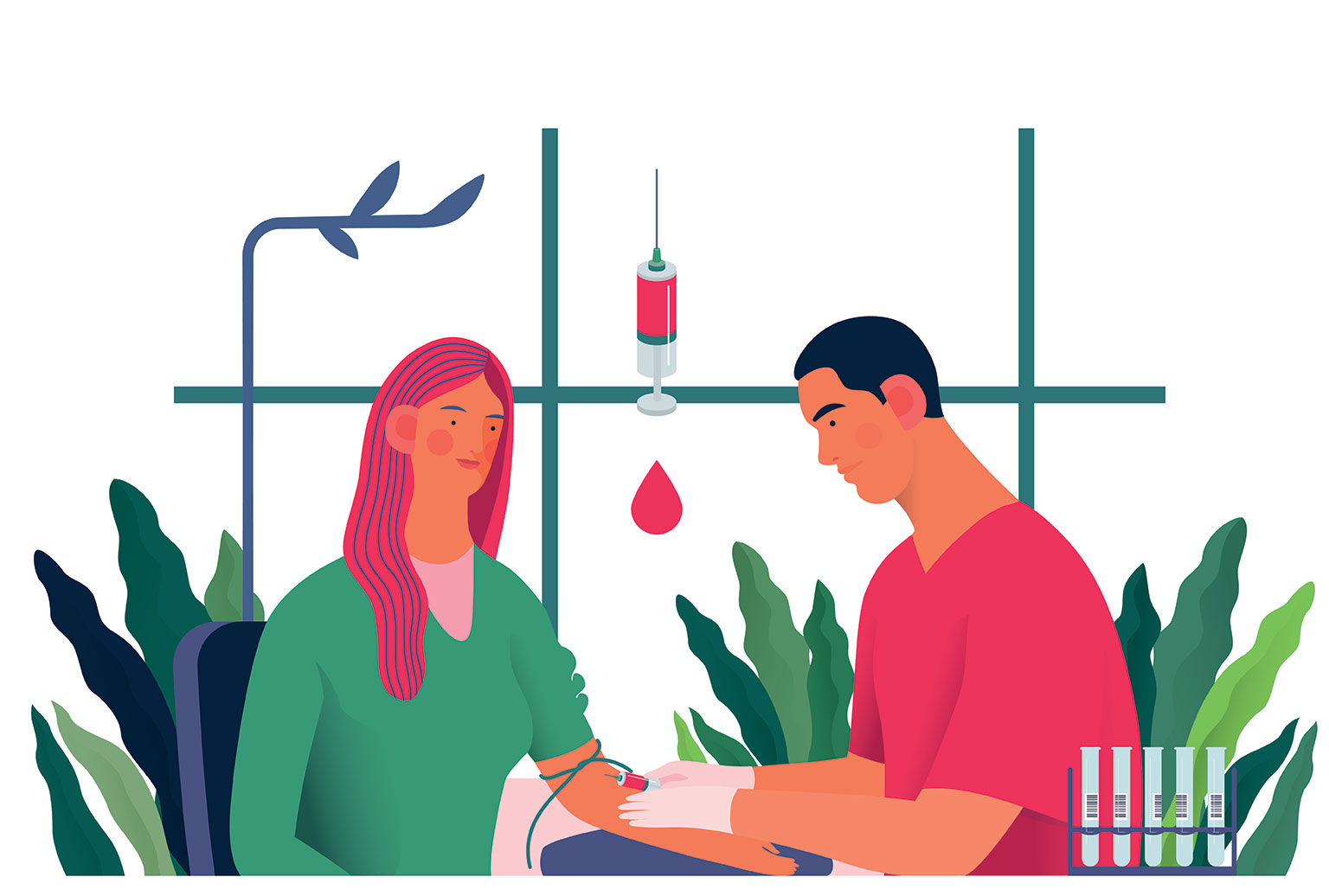Your doctor may have access to critical data from your blood test before you even schedule an appointment with them for your annual checkup or to talk about a medical problem you may have. The average medical chart contains information that is primarily derived from laboratory results [around 50%].
Blood test
A blood test may seem straightforward to you—aside from the possibility of experiencing “a little pinch”—but the diagnostic procedure itself is actually rather complicated and calls for specialised tools and personnel. Your blood must be prepped for the analyzer even before it is examined. A serum or plasma sample can be made by rapidly spinning the blood to extract the blood cells from the fluid component of the blood. The blood analyzer gadget then counts and categorises blood cells, or measures chemical reactions to find specific molecular quantities in the blood. A certified lab professional verifies the results before returning them to your doctor.
Age-related changes in your body’s essential glands result in increased or decreased hormone release that controls a number of metabolic processes. In order to accommodate your body’s needs, you must modify your lifestyle. And the first step in determining your body’s needs and limitations is to have medical tests performed.
Here are five crucial exams for women over the age of 30.
- A test for thyroid-stimulating hormone (TSH)
A TSH test is essential to determine whether your thyroid gland is operating at its best because 60% of Indian women have thyroid issues. If your thyroid gland’s hormones are insufficient, the findings of your TSH test might assist you to decide what corrective actions you’ll need to take. The main symptoms of a thyroid problem include hair loss, depression, and irregular menstrual periods.
- Vitamin B12 and Folate Test
The B complex of vitamins, which includes vitamins B12 and folate, are both necessary for human health. They aid in the creation of DNA, tissue and cell repair, and the healthy functioning of RBC.
A disorder with increased RBC called macrocytic anaemia can be brought on by a B12 or folate deficiency. Since vitamin B12 is mostly acquired from animal products such as meat, eggs, poultry, etc., strict vegetarians are more likely to experience vitamin B12 insufficiency. To reduce the danger of getting anaemia, it’s crucial to regularly check the blood for vitamin folate and B12 concentrations.
- Complete Blood Count (CBC)
A complete blood count (CBC) reveals that 51% of Indian women between the ages of 15 and 49 are anaemic, (red blood cell deficiency). A regular CBC test is crucial to ensuring a healthy blood corpuscle ratio and preventing the development of anaemia.
- Vitamin D Total & Calcium Test
Maintaining good bone density is necessary to avoid osteoporosis, which is thought to afflict 200 million women globally. Monitoring calcium and vitamin D levels will help you maintain good bone health. The amount and duration of vitamin D doses are determined by routine testing.
- TFT test
A little gland called the thyroid can be found in the lower front of your neck. It is in charge of controlling a variety of physiological functions, including mood, energy production, and metabolism. You may lose weight, feel extremely anxious, tremble, and feel “high” if your thyroid gland generates too many hormones. It is known as hyperthyroidism. Blood tests called thyroid function tests are used to assess how well your thyroid gland is functioning. TFT test like the T3, T4, T3RU, and TSH are readily available.
After a blood test
You will only have a very small amount of blood drawn for the blood test, so you shouldn’t experience any particularly unpleasant side effects. However, some persons experience slight dizziness both during and after the test. Inform the medical expert conducting the test if you have previously experienced this during a blood test so they are aware of it and can help you feel more at ease. After the test, you might notice a minor bruise where the needle was inserted. Bruises can hurt, but they are not dangerous and will go away in a few days.
What do the tests show?
A blood sample will be obtained, placed in a bottle, and labelled with the patient’s name and other personal information. They will then ship it to a lab where it will either be tested or studied under a microscope, depending on what is being examined. The hospital or your registered practitioner will then receive the results. When the test results are ready, you will be notified right away. Some test results may be available the same day or a few days later, while others may not be for a few weeks. When they are ready, you will be notified right away.
You can stay ahead of any health risks by routinely undergoing blood testing. Your blood tests can serve as a reference point for understanding ongoing changes in your blood. You can access a number of biomarkers from your blood tests and use them to track your changes over time.
Additionally, it is crucial to select a reputable diagnostic facility with the necessary tools before undergoing routine tests. The experts at reliable facilities have years of experience and skill, and they employ cutting-edge technology to precisely diagnose your diseases.

